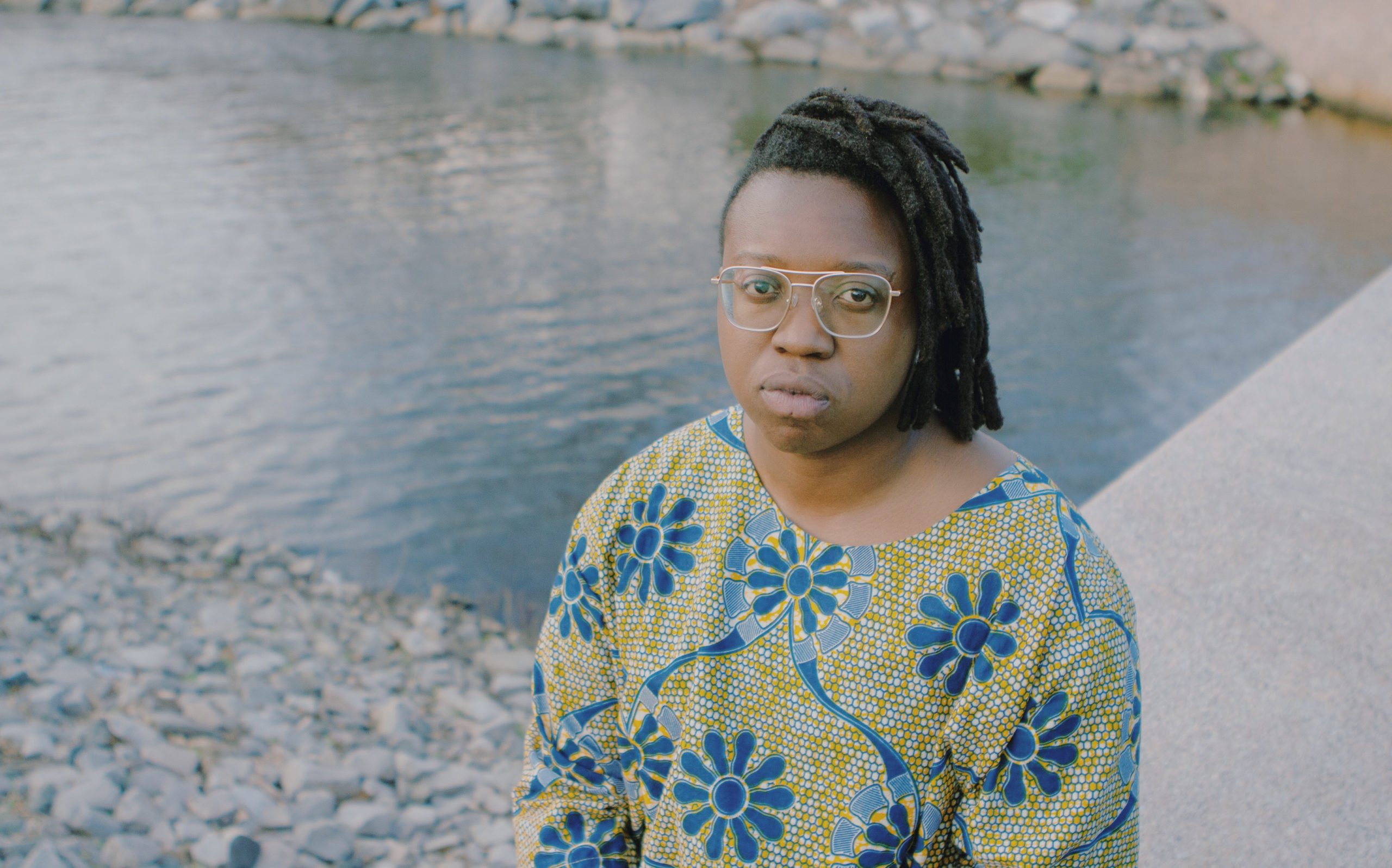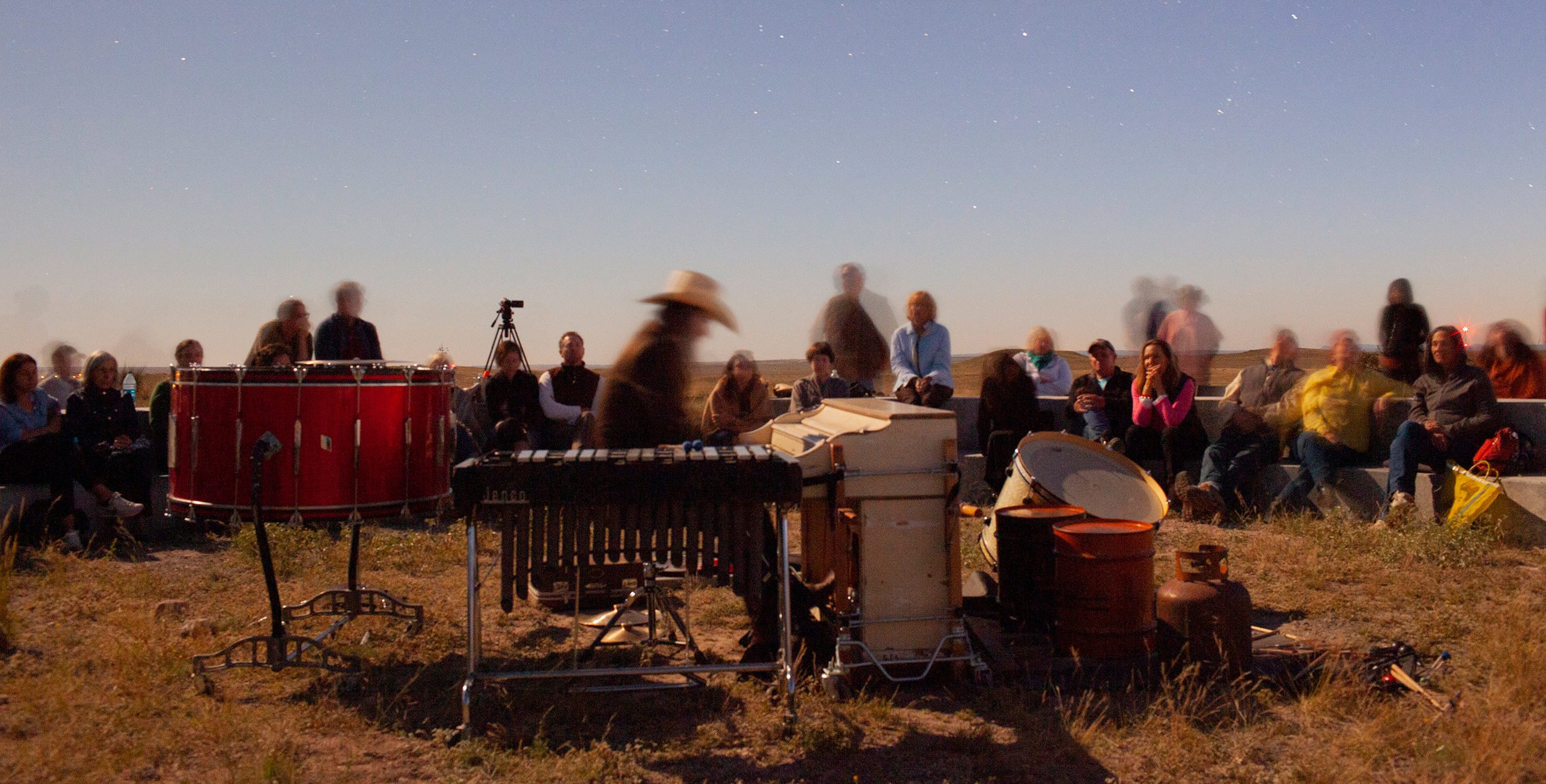Powerful Medicine
The power of music is a strange and wonderful thing: It can make you smile, dance and cry, and it can transport you back in time. One of my favorite buzzes is playing a brand-new unrehearsed song for an audience. “It’s in the key of C,” you tell your bandmate, “and it’s got this weird thing in the middle, just watch for it.” Off you go, over the cliff. Even if the song isn’t a keeper, there’s a good chance some kind of accidental musical magic will occur, imbuing the moment with a unique sparkle.
Singer/songwriter/guitar hero Jon Dee Graham and I have been having such accidents off and on ever since we started playing together 30 years ago in a band called The Skunks. We played so often we didn’t have time to rehearse, so new songs were typically hatched during sound check or in the back of the van. There’s been a lot of water under the bridge since those days, but I’m as hooked on that adrenaline rush as ever.
They say music can help Alzheimer’s victims hold onto their memories a little longer, that the universe hums in the key of B flat, and there’s evidence that the right groove can actually help heal the sick. I know that 11 years ago, when I was struggling with stage IV throat cancer, playing and singing rock ‘n’ roll made me forget, at least for a few minutes at a time, the ravages of surgery, radiation and chemo.
That’s why it seems so ironic, not to mention just plain wrong, that so many self-employed musicians can’t afford health care.
Fortunately, I’m covered under my wife’s insurance policy; still, we struggled to make it through two major surgeries and many months of treatment. Some of my medications weren’t covered, including an anti-nausea pill that ran about $250 for a two-week supply. Sometimes we got by on the free samples my doctors rounded up from the pharmaceutical reps. We downsized, we networked, and sometimes a friend gave me pot to smoke in lieu of prescription anti-nausea drugs, although I detest that drug even more than the bell-bottoms and muttonchops of the decade when all my friends were smoking it.
At one point, my wife’s employer changed insurance carriers, and the new plan didn’t cover one of the specialists who’d been treating me since my diagnosis. Instead of cutting me off, this doctor arranged to treat me for free. Besides being a great guy, he’s one of those establishment characters who gets a vicarious thrill out of my adventures in the creative arts. I guess my low-rent conquests seem like a cool distraction from the daily grind of treating a disease that turns your body into a factory for alien cell mutations.
The life of freelance adventure and improvisation is cool, all right, except when it isn’t. Jon Dee collided with one of its distinct disadvantages last summer when he fell asleep at the wheel coming back from a gig in Dallas. He hit a concrete highway divider going 80 mph, breaking ribs and vertebrae and needing emergency surgery to remove his spleen.
I visited him daily in the hospital, playing him my new songs on an iPod. Most of them earned a thumbs-up, but he was savage about the ones on which I played harmonica. He hates harmonica.
One day a counselor from the hospital came to discuss the bill, which had already run into the tens of thousands of dollars. The only insurance Jon Dee had was a catastrophic accident policy. His wife, Gretchen, had worked hard to talk him into the coverage, but now he was glad she had. If this wasn’t catastrophic, what was?
And yet, as the counselor tallied the charges she concluded that Jon Dee’s accident wasn’t quite catastrophic enough-the bill stopped short of the minimum for the policy to kick in.
“Can’t you cut off a leg or something?” I suggested, but no one was laughing. The only option was for the Grahams to pay the full bill on the installment plan.
The subsequent benefit shows held for Jon Dee, one of Austin’s best-loved musicians, put a small but much-appreciated dent in their bills. The most poignant of these benefits was an ice cream social on South Congress Avenue, inspired in part by some of Jon Dee’s youngest fans, who raised money with a lemonade stand.
The Grahams had a hard time accepting the outpouring of generosity, in part because they’d already been blessed with a phenomenal community effort back in 2005, when their son Willie was diagnosed with Legg-Perthes disease, a rare form of bone degeneration in the hip. The Grahams lost Willie’s coverage when their insurance company filed for bankruptcy; other carriers considered Willie’s condition pre-existing and wouldn’t cover him. Some of Jon Dee’s friends and fans raised money through benefit concerts headlined by Los Lobos and True Believers and a CD release.
When you consider how much musicians and other artists contribute to the community, it seems unfair that it’s so difficult for them to get medical coverage. What if only musicians with health insurance-out of the 8,000 in Austin-could play regularly? We’d have to recall all our “Live Music Capital of the World” bumper stickers and settle for “Home of the Willie Nelson Museum” or something.
The contributions of Austin’s musicians and artists aren’t measured just by numbers of nightclubs and decibel meters, either. According to one economic impact study, Austin’s music industry contributes more than $1 billion each year to the city’s economy and more than $25 million in local tax revenue. While an overabundance of local talent means that Austin musicians have a hard time finding enough work to make ends meet, 11,200 local jobs depend on the music business.
The Health Alliance for Austin Musicians (HAAM) was founded three years ago to help provide low-cost medical, dental and mental-health services to financially strapped musicians.
The SIMS Foundation-founded in 1995 by the friends and family of Sims Ellison, a troubled local musician who committed suicide-helps provide mental health and addiction counseling and even group sessions for feuding band members. To date, SIMS has helped more than 1,500 musicians.
Before any of you non-musician readers get envious of these services, bear in mind that HAAM’s eligibility requirements cap income at 250 percent of the federally defined poverty level. Those are musicians who rely on ramen noodles and boil guitar strings to make them last longer.
What’s amazing is that these programs are relatively unusual, if not unique, in the United States. Representatives of HAAM and SIMS report receiving calls from people from around the country seeking advice to apply to their own communities.
“A colleague in California told me that there’s nothing like SIMS there,” says the foundation’s Catarina Sigerfoos.
“They all want to know how we do it,” says Carolyn Schwarz, executive director of HAAM. “We have a model that’s definitely transferable to other creative communities.”
But as innovative and forward-thinking as Austin’s programs are, a lot of musicians inevitably fall through the cracks. Which brings me back to Jon Dee Graham.
Still suffering intense pain, he began playing again a month after the accident, pacing himself by telling stories and pulling up his shirt to reveal the stem-to-stern scar from the emergency spleen removal. Then, in December, still destabilized by a broken vertebra that refused to heal, he fell off a ladder while stringing up Christmas lights, resulting in 16 new fractures of his rib cage, internal bleeding, a punctured liver and a collapsed lung.
Saddled with exponentially larger medical bills, the Grahams’ holiday season was enlivened by two more hospital stays, tests and scans, misadventures in pain management, cancelled gigs, and quite a few grim jokes that only uninsured veteran musicians and their spouses can fully appreciate. Then again, when your ribcage is shattered and all your fans just want to give you a hug, it can hurt to laugh almost as much as it hurts to sing.
I think I speak for most of the arts community and, in fact, most Americans when I say that we’re all anticipating a fairer deal on health care under the administration of President Barack Obama. We need an FDR-type New New Deal, one that recognizes that our government can and should make reasonable health care one of our basic rights.
Obama’s campaign promised a healthcare plan that will “ensure that small businesses and those who are self-employed [read: musicians, writers, artists, etc.] have affordable health care.” Individuals will have the choice of buying affordable health coverage similar to the plans available to federal employees and members of Congress. Or they will be able to buy a private plan through something called the Health Insurance Exchange.
Not many details there, but the man has a mandate and political capital to spare, so color me optimistic.
Although Austin’s homegrown programs are focused more on counseling and preventive care than reactive medical care, I can’t help wondering if elements of HAAM and SIMS could prove transferable, or even just aspirational, to a more comprehensive national program. Maybe the Obama people should consider offering a Cabinet position, or at least a consultation contract, to one of these organizations’ founders.
Jon Dee and I played several gigs during the first two weeks of 2009, during which we unveiled maybe half a dozen new songs. Before the first show of the year, he was doubled over in pain, having spent the previous 12 hours at the hospital dealing with fluid retention from his wounds. I didn’t think he was going to play at all that night, but once we got onstage and struck the first chord, his face lit up and that crazy magic happened all over again.
One of the new songs we played that night is the one I wrote about his accident and my reaction to it, called “That’s How the Devil Rolls.” Jon Dee gave me a hard time when I first read him the lyrics.
“Damn it, you scooped me,” he said. “You scooped me on my own experience!”
“Sorry,” I said. “But you’d do the same to me.”
“Damn right I would,” he said.
Nine days and several gigs later, Jon Dee got on a plane bound for Europe to tour for a few weeks with songwriter James McMurtry. Jon Dee calls it his “AMA tour,” as in “against medical advice,” but his doctors, like his wife and friends, know there’s no stopping him.
“He’s never happier than when he’s playing,” Gretchen says. Anyone who’s seen him play knows that already.
Then there’s another obvious fact: He really needs the money.
Here’s hoping Jon Dee returns to Austin stronger and farther down the road to recovery. And let’s hope he returns to a nation committed to reinventing its safety net in a way that provides affordable health care to the musicians who make us smile, dance and cry, forget and remember.
And to regular people, too.
Jesse Sublett is a musician and writer in Austin.


